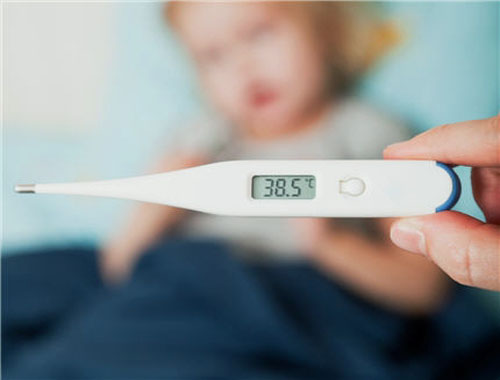Fever
A fever is usually a sign that something out of the ordinary is going on in your body. For an adult, a fever may be uncomfortable, but fever usually isn't dangerous unless it reaches 103 F (39.4 C) or higher. For very young children and infants, a slightly elevated temperature may indicate a serious infection. But the degree of fever doesn't necessarily indicate the seriousness of the underlying condition. A minor illness may cause a high fever, and a more serious illness may cause a low fever. Usually a fever goes away within a few days. A number of over-the-counter medications lower a fever, but sometimes it's better left untreated. Fever seems to play a key role in helping your body fight off a number of infections.
